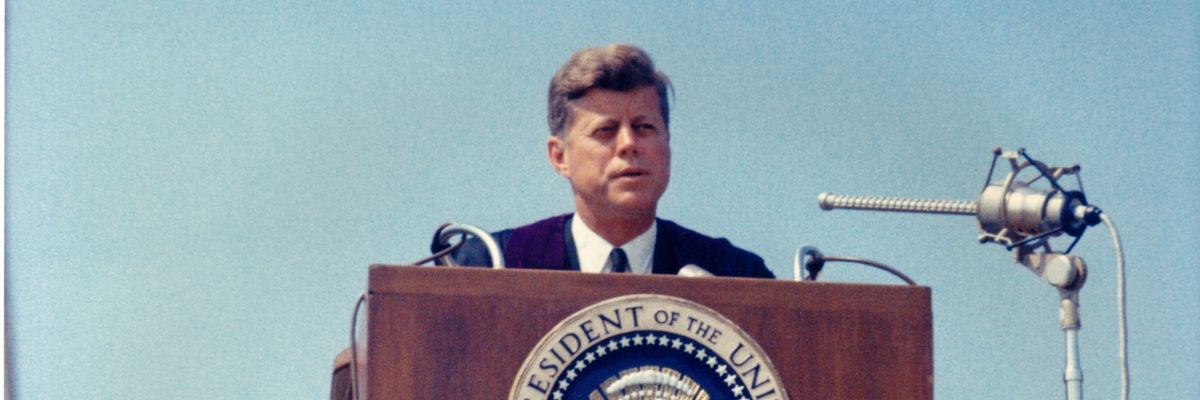
On September 21, 2024, the International Day of Peace.
Ten Principles in President John Kennedy’s
“Vision of World Peace” Commencement Address
JFK Peace Speech Committee
1. World peace is the most important topic on earth – something on which ignorance abounds and the truth.
2. Anyone who despairs of war and desires peace has a responsibility to contribute. This can begin by looking inward and examining our own attitudes toward peace, the cold war, the “other”, as well as peace and justice in our own society.
- True peace is not a Pax Americana imposed on the world by weapons of war. True peace makes life better for everyone. Everyone’s security concerns must be taken into account.
- Peace is a process, a way of solving problems. World peace, like community peace, does not require that we all love each other, but that we agree to live together in mutual tolerance, submitting our disputes to a just arbiter. World peace does not require a revolution in human nature, but an evolution in human institutions. The UN is a critical venue for fostering peace. It needs to be strengthened as a democratic forum.
- While the eventual goal is a complete end to war and complete general disarmament, focusing solely on this goal only invites discouragement. It is critical to grasp what can be done now, that can give momentum to the peace process and provide people with hope. What can we do today?
- No people, nation or system is so evil that they are without value. Our attitude is as important as theirs. Our most basic common link is that we all inhabit this small planet; we all breathe the same air; we all cherish our children’s future; and we are all mortal. Reject enemy images.Seek to understand. Take the trouble to learn what the other side is actually saying.Find common interests.
- In the nuclear age, peace is a necessity. It is critical that we conduct ourselves in a way that encourages the other side to want to cooperate with us and avoids confrontations in which either side’s only options are humiliating defeat or the use of nuclear weapons.
Partners in survival – Not Enemies. Win/Win – Not Win/Lose. - There is no simple key, no grand solution. Peace is the result of many acts. Everyone has something to contribute.
- Peace and justice are connected. It has been said, “Peace is the order that flows from social justice.” Attend to justice and peace in our own communities.
- The pursuit of peace is not as dramatic as the pursuit of war and calls for peace often fall on deaf ears, but we must persist. In the final analysis peace is a human right — the right to live out our lives without the threat of annihilation, the right to a sustainable world for ourselves, our children, and future generations. No one will give us our human rights.We must organize and work to achieve them.Find allies and build solidarity.
President John F. Kennedy’s “Peace Speech”
American University, June 10, 1963
Comment
Suzy — And this was at a time when the US was already engaged in War in Vietnam — which was initiated under Eisenhower, arming the French, against the Vietnamese fight for Independence. When the Vietnamese in the North won their fight against the France, Eisenhower agreed to a Peace deal, that guaranteed free and fair elections for the people of Vietnam to choose whether to unify Vietnam signed in the Geneva Accord, to be done by a certain date. Eisenhower reneged and probably never intended to honor the signed Peace Deal. The rest is history. JFK proceeded to carry the war on.